
“Let’s cross the street to see Freddie”. The street in question is North Halstead Street, and ‘Freddie’ is none other than Freddie Mercury, his boyish face shining in the scorching Chicago sun. “After him, I’ll show you where Sylvia and Marsha are, so you can say hello.”
This is how my guide Victor Salvo introduces me to Chicago’s Legacy Walk, his magnum opus, and the first open-air museum celebrating LGBT+ culture in the world.
Chicago may have clung to its “Second City” moniker fiercely, but when it comes to queer history and communities, the city is second to none.
Believe it or not, not all “firsts” in LGBT+ history are linked to New York. Not only is Northalsted (historically named “Boystown”) the first official ‘gaybourhood’ in the US, Chicago is also where the first Pride March took place on 27 June 1970, a day before the Christopher Street Liberation March in NYC that would shake the world awake.
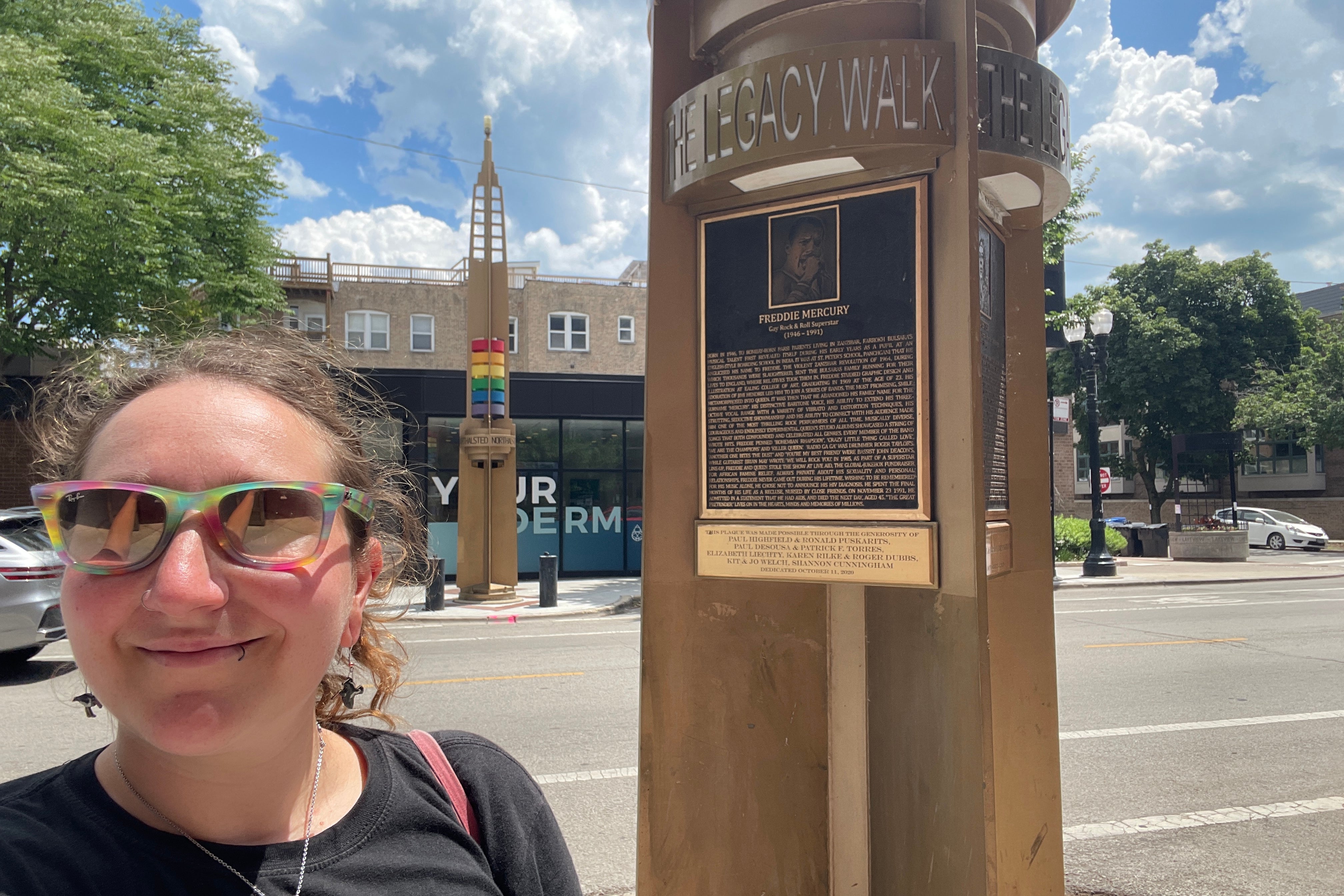
“Everybody always talks about New York or San Francisco, whereas Chicago has always been, in some respects, a flyover city”, Victor explains. “But because people in Chicago have historically been overlooked, they’ve developed their own attitude towards getting things done.”
The Walk, 25 years in the making, is the result of that attitude.
Once just steel pylons rooted on busy North Halsted Street, today the 20 rainbow pillars form a monument to remember queer people who left a mark, from politics and medicine, to sports and entertainment. Well-known or obscure, each person gets a bronze portrait and plaque telling their story, as well as recognising those who contributed to put them there, including organisations and individuals sponsoring their place on the Walk.
Read more: 15 emerging LGBT+ travel hotspots to discover in 2025, from Osaka to Medellin
As Victor and I walk from pillar to pillar, the tarmac under our feet is steaming hot, a result of 38C weather, construction works and the city preparing for its pride festivals: the three main ingredients of a “Chicago summer”, he tells me. Road repairs and street parades are both things Chicagoans save for when their freezing winters are over.
And LGBT+ celebrations are a big part of the city coming back to life in summer. There’s Pride Fest in early June, then the main Chicago Pride Parade (attracting over a million people every year), and then, the pièce de résistance: Market Days. For three days in August, the biggest street festival in the Midwest takes over Northalsted, with a packed calendar featuring over 250 exhibitors setting up shop in the busy artery, and international stars coming to perform. Gloria Gaynor, The Village People, and Belinda Carlisle are just a few of the musical acts to have headlined.
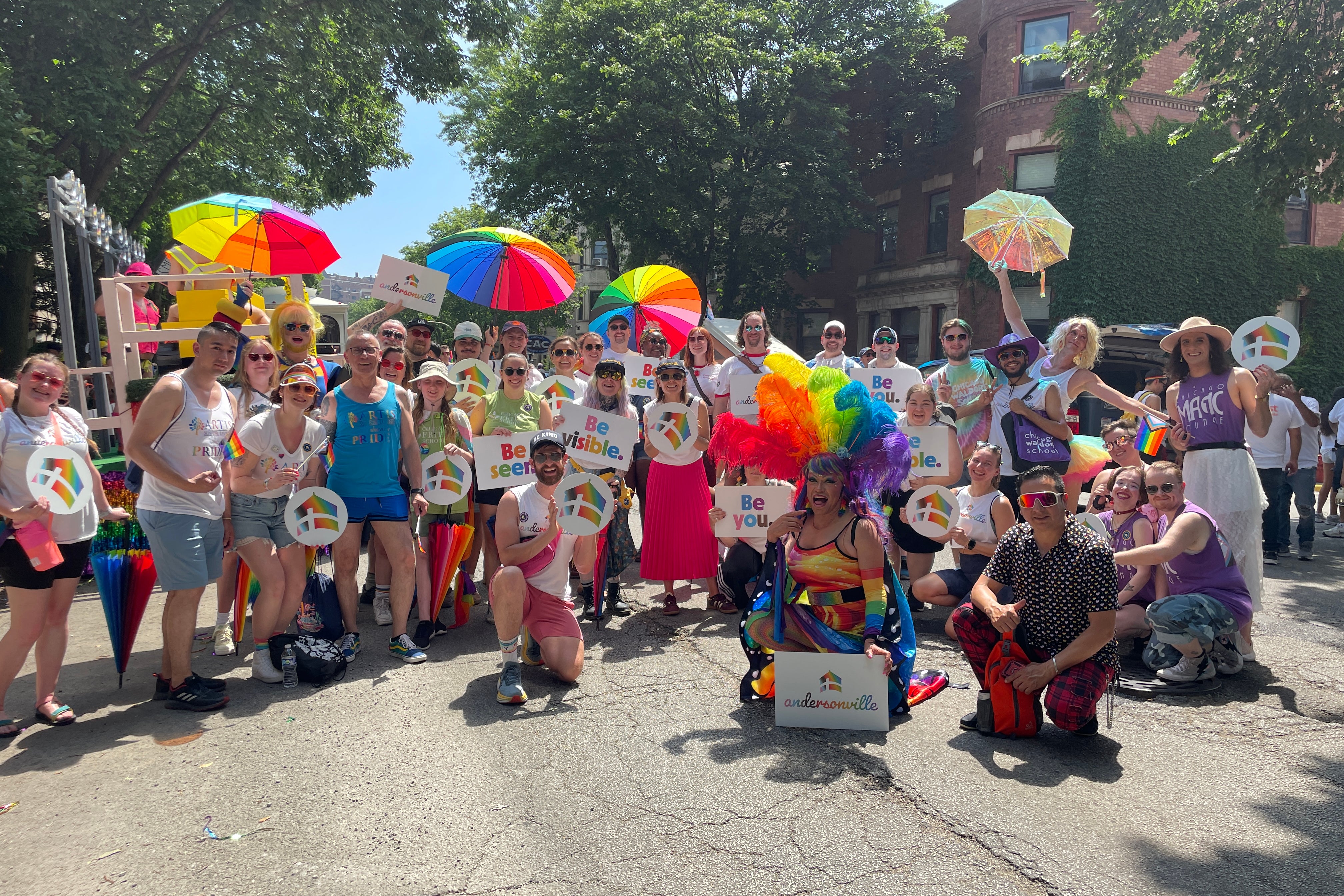
But it isn’t all partying. The city has had a significant impact on US history – from the role it played in establishing the very first food regulations to contributing to the formation of social welfare – and this is reflected on LGBT+ landmarks, including archives solely dedicated to LGBT+ rights history, and monuments paying tribute to activists, artists and citizens in the queer community.
The Gerber/Hart Library and Archives is a queer mecca for those curious to explore the city’s archives by delving into some of the 2,000 LGBT+ books. Its immersive, permanent display of newspaper and magazine clippings is dedicated solely to LGBT+ milestones in the city, from the first discrimination case won in court, to life-size photographs of the first lesbian wedding celebrated in the City Hall.
Read more: Why you should visit Provincetown, the Cape Cod town that’s a beacon for progress
Another key landmark is Chicago’s Aids Garden, tucked in a pocket of sprawling Lincoln Park. As I walk from the edge of roaring Lake Michigan to the small, intimate garden, it’s tantamount to a spiritual experience for me. Scanning the tree-mounted QR codes, I explore the personal stories of many Chicagoans who had the disease between the 1980s and 2000s. Listening to their stories in their own voices, I feel like I’m not in a park at all – rather in an outdoor temple where the wind, trees, and birds echo these stories.
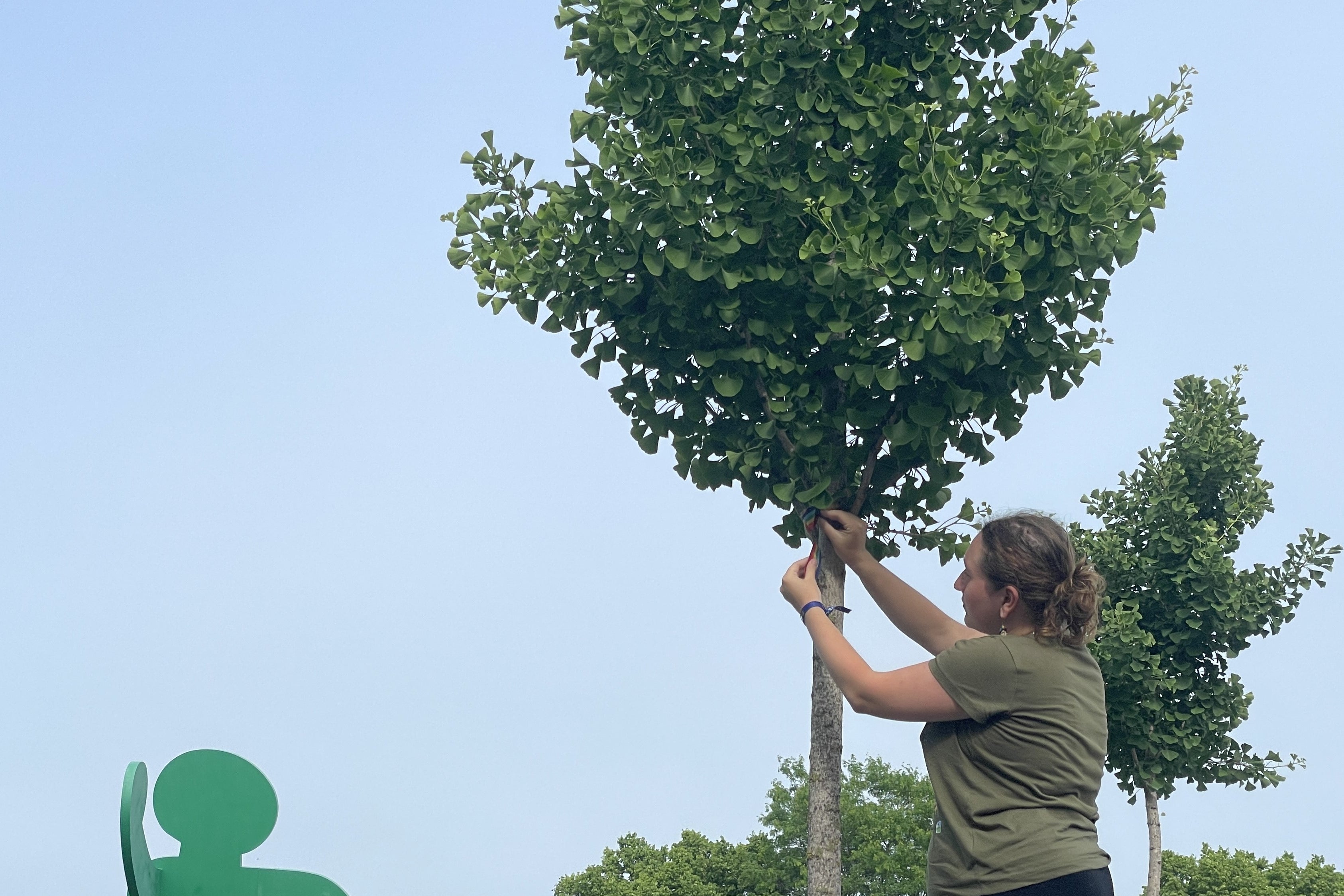
Like many before me, I tie my rainbow ribbon to one of the trees to pay tribute to my own queer elders, the people whose lives keep inspiring me and those who keep marching at pride parades around the globe.
Northalsted may be the place to party, but Andersonville is the neighbourhood most queer Chicagoans call home. Known as the “shop local” capital of the metropolis, 90 per cent of businesses here are independent and the vast majority are LGBT+-owned and run.
They all breathe fresh air into this diverse community, from vinyl shops like Reckless Records to boutiques such as Cowboys and Astronauts, as well kids’ clothes shops, and a wide array of artisanal displays gathered in Andersonville Galleria.
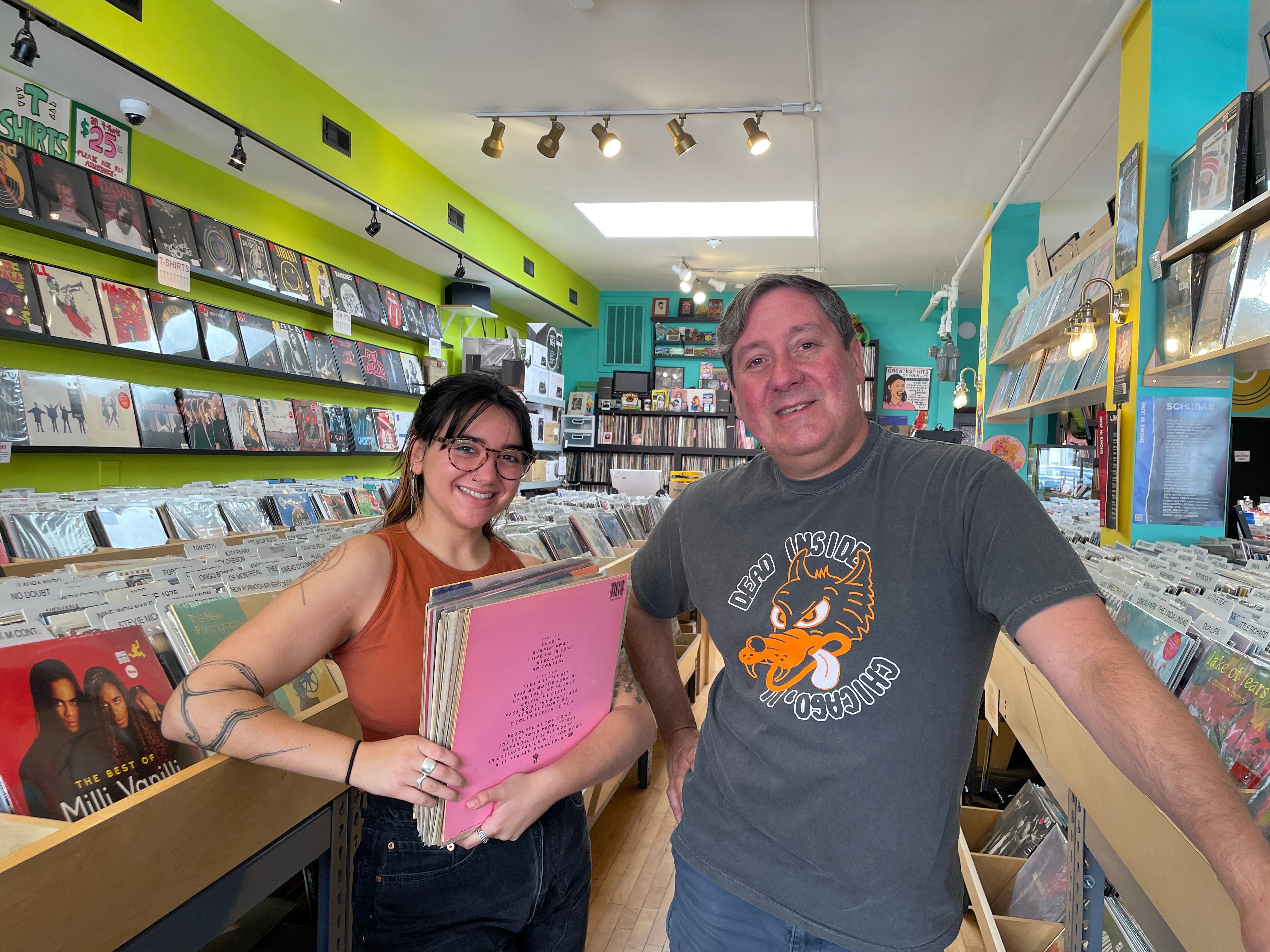
The ripple effect of Chicago’s strong advocacy groups and outspoken communities is life-changing for many, Chicago Therapy Collective (CTC) founder and director Iggy Ladden tells me. They share with me how a deeply personal experience turned into positive change for all.
“I was barred from my baby's birth certificate as a non-binary person, and that was a very heartbreaking experience,” they begin. “It didn't even register to me at the time that that was discrimination. I was just like, ‘oh, this is what happens’.
“I had the privilege to share that [experience] with Chicago’s governor at one of the charity’s events. Fast forward two years, Illinois has just passed a bill called Equality for Every Family, which modernises all of our parentage, adoption and surrogacy laws to ensure that there's no discrimination against queer people and second parents.”
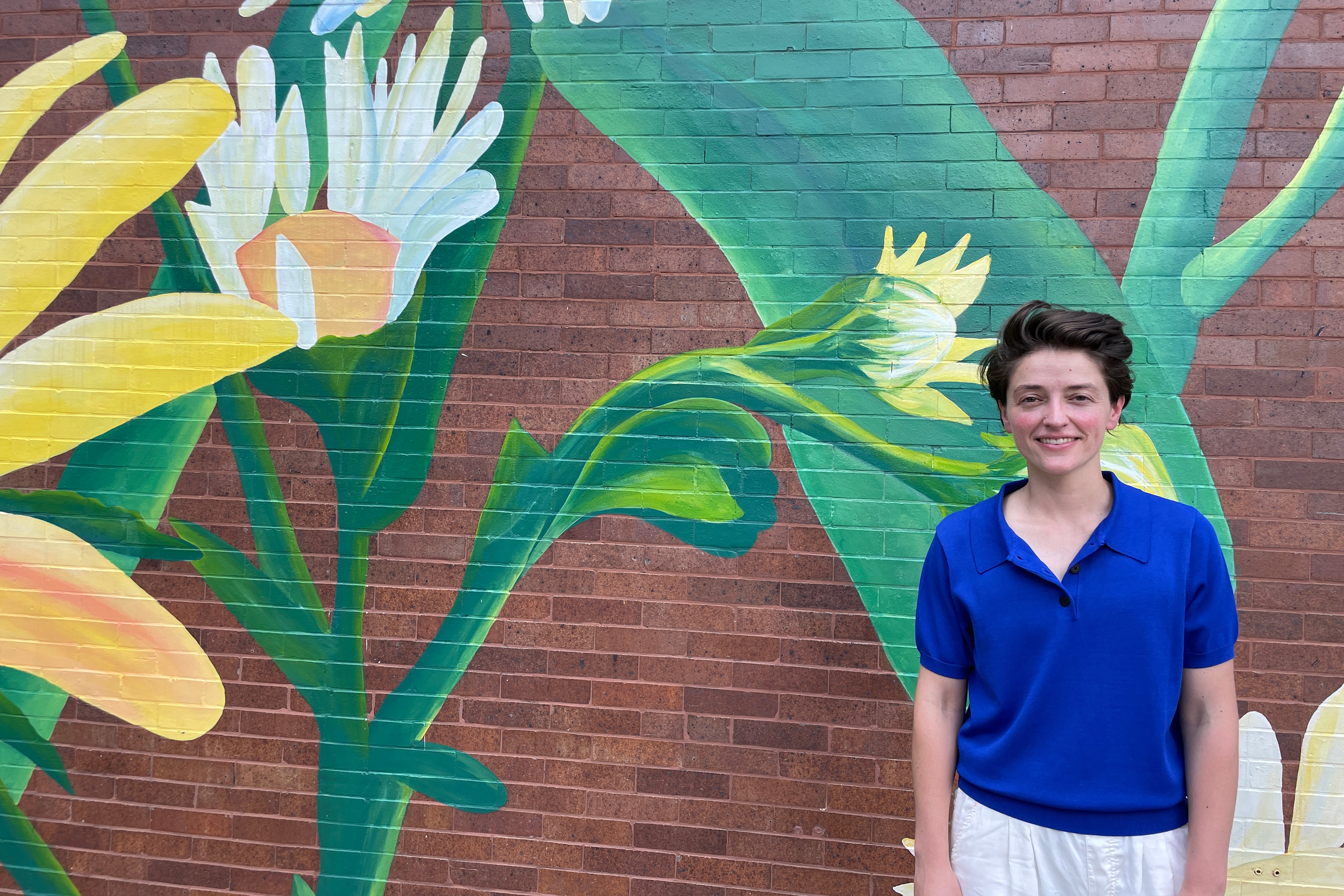
I also have the good fortune to catch Chicago’s mayor, Brandon Johnson, address the district with his commitments around LGBT+ rights during what is a fraught time to be queer in the US. Though this is an extraordinary event, I get the sense that these conversations happen frequently here.
Iggy’s story is only one such instance – a sign of the “city of broad shoulders” once again turning words into deeds for the communities that call it home.
Read more: The 15 best LGBT+ friendly destinations for a wedding anniversary
Where to eat and drink
Ask any Chicagoan in the street for recommendations on what to do, and chances are they will tell you their favourite eateries.
After a day of hopping from one place to the other, I find a cosy, no-frills but special diner hits the spot. Little Goat is a bright star in the city’s brunch scene, but has amazing options for every meal. Don’t skip the seasonal specials, and save space for dessert.
For a tipple or two, Andersonville gem Nobody’s Darling is a stylish cocktail bar that feels like a community hub and your cool aunts’ dining room. Wives Angela Barnes and Renauda Riddle are at the helm, and their goal from day one was to create a space where people can mingle, sip delicious cocktails and simply exist joyfully.
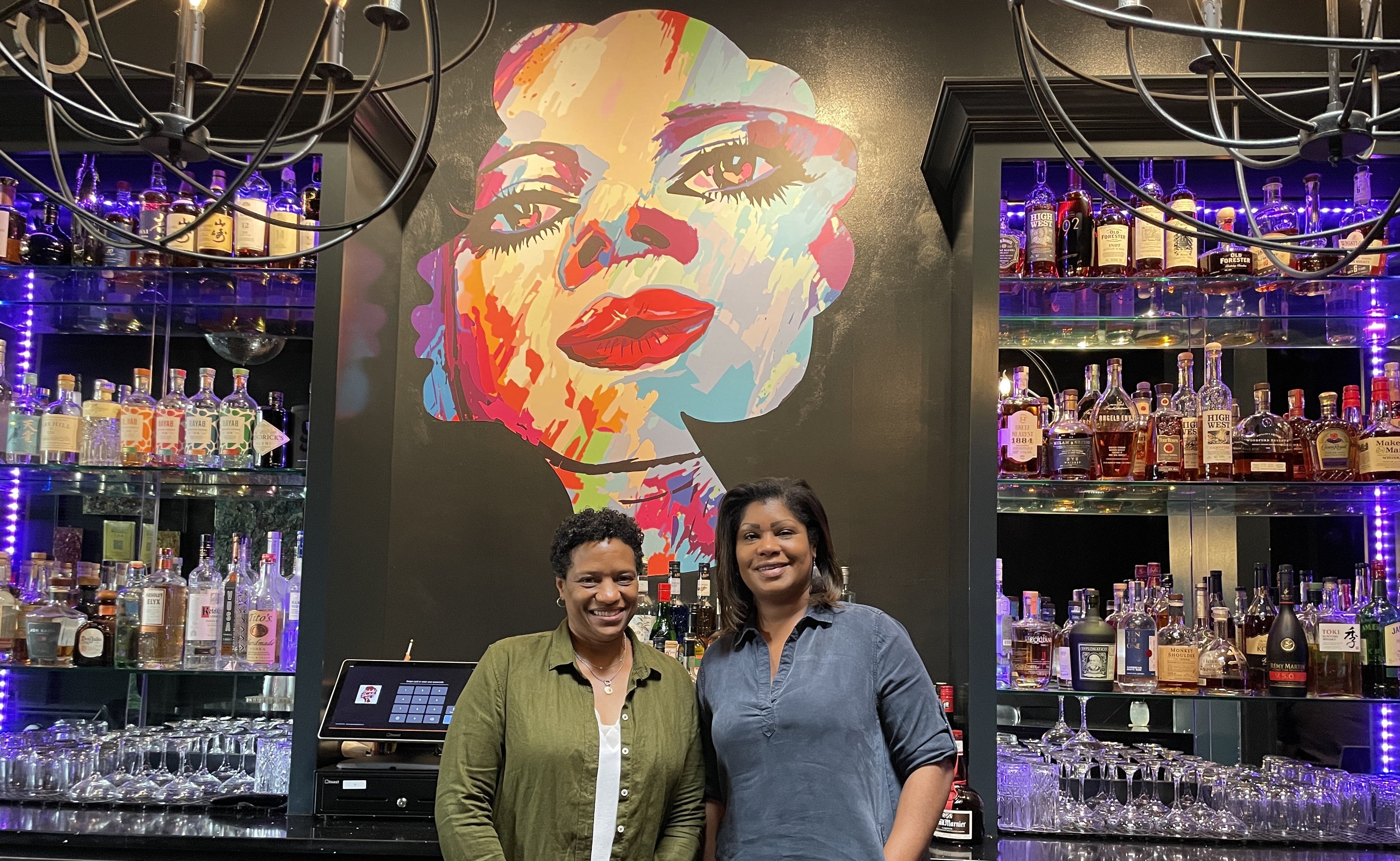
Should one of those chats turn into a romantic date, the place to go is Drew’s on Halsted. A refined but relaxed atmosphere is the accompaniment to hearty American-European dishes, from mac ‘n’ cheese to filet mignon. Snatch a seat by the window to see Northalsted come alive at nighttime.
For special but casual, you have heaps of options. Marina’s Bistro is in a blink-and-you-miss-it place, a literal hidden gem in Uptown Chicago. Owner and chef Eric Roldan named the place after his mum, and exclusively uses family recipes for his delicious, elevated Puerto Rican dishes.
Home to the longest-running drag brunch in the city, Kit Kat Lounge dishes up good food alongside drag performances twice every day. No matter whether you stay for a stack of pancakes or evening bingo with a side of fried chicken, your eyes will be glued to the insanely talented performers.
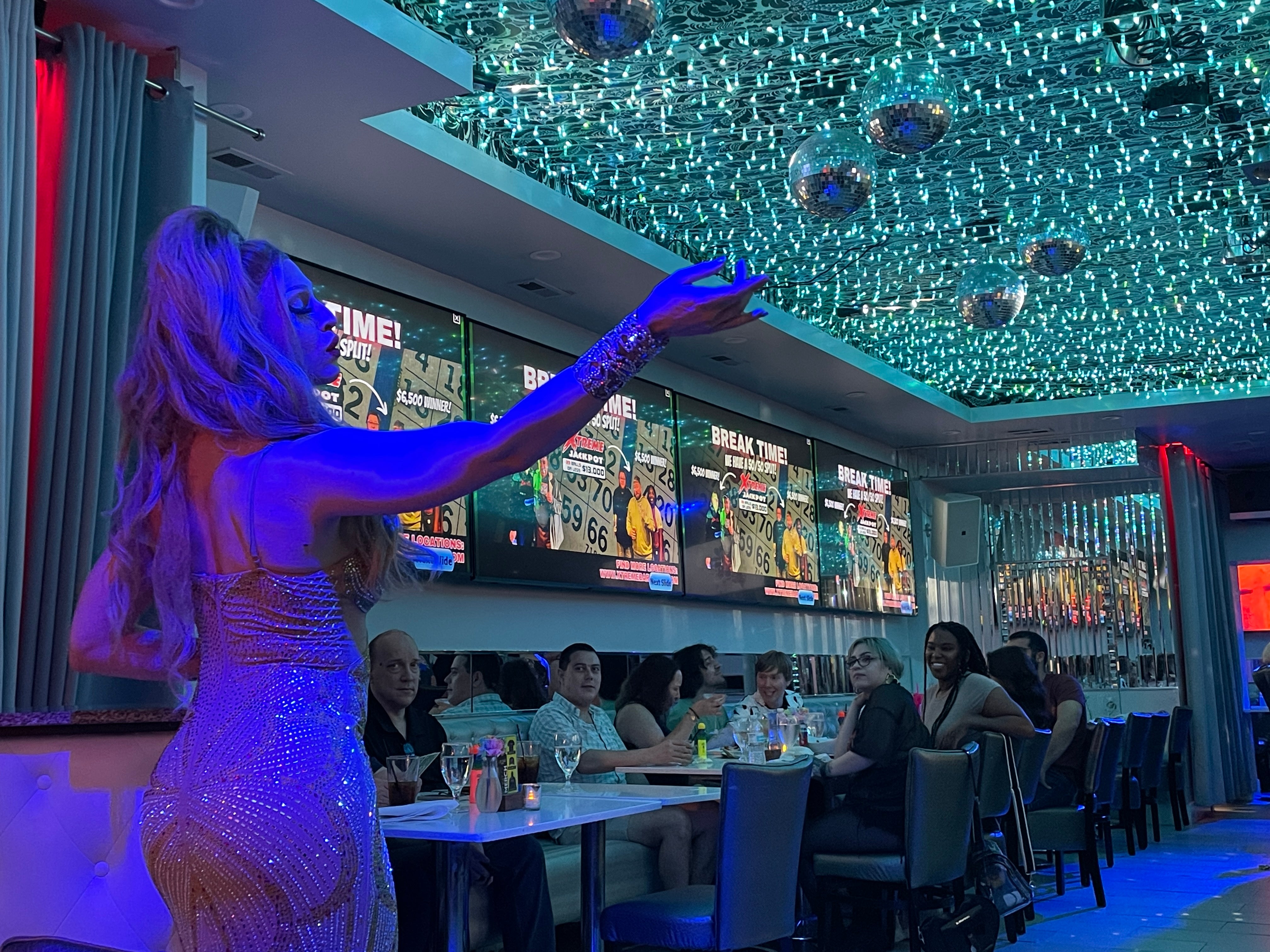
Getting there
United Airlines, American Airlines and British Airways have direct daily flights from London Heathrow to Chicago O’Hare. Flight time is around 8 hours 45 minutes. To go through pre-approval in Dublin, Aer Lingus and American Airlines fly direct to Chicago O’Hare. Flight time is around 6 hours 30 minutes.
Where to stay
For all the comforts of a hotel but the freedom of an apartment all to yourself, book the boutique Guesthouse Hotel, your home away from home in Andersonville (double bedroom flats start from $500/£370 per night).
If you want to be in the heart of downtown, a room at Virgin Hotels starts at $270/£200.
If you’re saving your bucks, the J. Ira and Nicki Harris Family Hostel has all-gender dorms starting from $40/£30 per night, and is top rated in the city for LGBT+ solo travellers.
Rory was hosted by Choose Chicago.
Read more: How I found love at Florida’s Walt Disney World
Why you should visit Provincetown, the Cape Cod town that’s a beacon for progress
A runner’s guide to visiting Boston for the Marathon
Six of the US’s most unique Airbnbs, from a giant shoe to a spaceship
I visited NYC to see if it still lives up to the hype of Gossip Girl and Friends







